Table of Contents
Scott Joplin The Entertainer with sheet music
Who Was Scott Joplin?
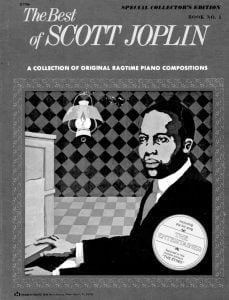
Born in the late 1860s somewhere along the border between Texas and Arkansas, Scott Joplin took up the piano as a child and eventually became a travelling musician as a teen. He immersed himself in the emerging musical form known as ragtime and became the genre’s foremost composer with tunes like “The Entertainer,” “Solace” and “The Maple Leaf Rag,” which is the biggest-selling ragtime song in history. Joplin also penned the operas Guest of Honor and Treemonisha. He died in New York City on April 1, 1917.
Musical Family
Scott Joplin’s exact date of birth and location is not known, though it is estimated that he was born between the summer of June 1867 and January 1868. Born to Florence Givens and Giles Joplin, Scott grew up in Texarkana, a town situated on the border between Texas and Arkansas.
Best Sheet Music download from our Library.
The Joplins were a musical family, with Florence being a singer and banjo player and Giles a violinist; Scott learned how to play the guitar at a young age and later took to the piano, displaying a gift for the instrument. Julius Weiss, a German music teacher who lived in Joplin’s hometown, gave the young pianist further instruction. Joplin was also a vocalist and would play the cornet as Joplin left home during his teen years and began work as a travelling musician, playing in bars and dance halls where new musical forms were featured that formed the basis of ragtime, which had distinct, syncopated rhythms and a fusion of musical sensibilities.
Joplin lived for a time in Sedalia, Missouri in the 1880s, and in 1893 he fronted a band in Chicago during the World Fair. He later settled in Sedalia again while continuing to travel, with the waltzes “Please Say You Will” and “A Picture of Her Face” becoming his first two published songs.
Please, subscribe to our Library.
If you are already a subscriber, please, check our NEW SCORES’ page every month for new sheet music. THANK YOU!
Writing Huge Hit: ‘Maple Leaf Rag’
Joplin studied music at Sedalia’s George R. Smith College for Negroes during the 1890s, and also worked as a teacher and mentor to other ragtime musicians. He published his first piano rag, “Original Rags,” in the late 1890s, but was made to share credit with another arranger. Joplin then worked with a lawyer to ensure that he would receive a one-cent royalty of every sheet-music copy sold of his next composition, “The Maple Leaf Rag.” In 1899, Joplin partnered with publisher John Stark to push the tune. Though sales were initially slight, it went on to become the biggest ragtime song ever, eventually selling more than a million copies.
Joplin focused on composing more ragtime works, with the genre taking the country by storm and Joplin earning acclaim for his artistry. Some of Joplin’s published compositions over the years included “The Entertainer,” “Peacherine Rag,” “Cleopha,” “The Chrysanthemum,” “The Ragtime Dance,” “Heliotrope Bouquet,” “Solace” and “Euphonic Sounds.
Opera Ambitions
Joplin was intensely concerned with making sure the genre received its proper due, taking note of the disparaging comments made by some white critics due to the music’s African American origins and radical form. As such, he published a 1908 series that broke down the complexities of ragtime form for students: The School of Ragtime: Six Exercises for Piano.
Joplin also aspired to produce long-form works. He published the ballet Rag Time Dance in 1902 and created his first opera, A Guest of Honor, for a Midwestern tour in 1903. The production was shut down due partially to the theft of box-office receipts, with Joplin ultimately dealing with great financial losses.
By 1907, Joplin had settled in New York to work on securing funding for another opera he had created, Treemonisha, a multi-genre theatrical project which told the story of a rural African-American community near Texarkana. A precursor to George Gershwin’s Porgy and Bess, Treemonisha was presented in 1915 as a scaled-down production with voice and piano, but would not receive a full-stage treatment for years to come.
Final Years and Legacy
Joplin continued to work on various musical forms and formed his own publishing company with his third wife, Lottie, in 1913. By 1916, he had started to succumb to the ravages of syphilis, which he was thought to have contracted years earlier, and was later hospitalized and institutionalized. Joplin died on April 1, 1917.
Ragtime would enjoy a resurgence during the 1940s, and then in the ’70s became a hugely popular classical genre that also entered the U.S. consciousness via film—”The Entertainer” became the theme song for The Sting, starring Paul Newman and Robert Redford. Joplin’s Treemonisha was also fully staged in 1975 on Broadway. The following year, Joplin received a special posthumous Pulitzer Prize, honoring the man who shaped a genre that influenced decades of music.
“The Entertainer”
The Entertainer is a 1902 classic piano rag written by Scott Joplin. It was sold first as sheet music, and in the 1910s as piano rolls that would play on player pianos.The first recording was by blues and ragtime musicians the Blue Boys in 1928, played on mandolin and guitar.
As one of the classics of ragtime, it returned to international prominence as part of the ragtime revival in the 1970s, when it was used as the theme music for the 1973 Oscar-winning film The Sting. Composer and pianist Marvin Hamlisch’s adaptation reached #3 on the Billboard pop chart and spent a week at #1 on the easy listening chart in 1974. The Sting was set in the 1930s, a full generation after the end of ragtime’s mainstream popularity, thus giving the inaccurate impression that ragtime music was popular at that time.
The Recording Industry Association of America ranked it #10 on its ‘Songs of the Century’ list.
Browse in the Library:
| Artist or Composer / Score name | Cover | List of Contents |
|---|---|---|
| The Truman show – Truman Sleeps – Philip Glass | Truman sleeps | |
| The Trumanshow – Dreaming Of Fiji – Philip Glass | ||
| The Trumanshow – Truman Sleeps – Philip Glass | ||
| The Ultimate Fake Book 2nd Edition for keyboard, vocal, guitar and all C inst. |
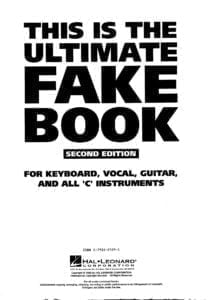 |
The Ultimate Fake Book 2nd Edition for keyboard, vocal, guitar and all C inst |
| The Ultimate Gospel Choir Book Vol4 |
 |
The Ultimate Gospel Choir Book Vol4 |
| The Ultimate Pop Rock Fake Book A-Z (ebook) |
 |
The Ultimate Pop Rock Fake Book A-Z (ebook) |
| The Ultimate Pop Rock Fake Book Joel Withburn |
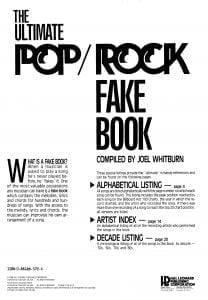 |
The Ultimate Pop Rock Fake Book Joel Withburn |
| The Untouchables – Main Title – Morricone (Musescore File).mscz | ||
| The Used – Smother Me | ||
| The Utimate Broadway Fake Book |
 |
The Utimate Broadway Fake Book – Hal Leonard |
| The Very Best Of John Williams – Dan Coates arr. easy piano |
 |
The Very Best Of John Williams – Dan Coates arr. easy piano |
| The Very Best Pop Songs Of All Time 19 of the best-ever pop songs Piano voica and guitar chords |
 |
The Very Best Pop Songs Of All Time |
| The Village – The Gravel Road – James Newton Howard | ||
| The Visible And Invisible In Pianoforte Technique (By Tobias Matthay) (1947) |
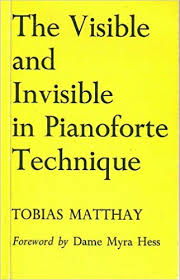 |
|
| The way we were – Barbara Streisand | The way we were – Barbara Streisand | |
| The Way We Were – Piano And Vocal (Musescore File).mscz | ||
| The Way We Were – Piano and vocal Barbra Streisand | The Way We Were – Piano and vocal | |
| The Way We Were (Lead sheet with Guitar chrods and lyrics ) |
 |
|
| The Way We Were (Lead Sheet With Lyrics ) (Musescore File).mscz | ||
| The Way We Were (Musescore File).mscz | ||
| The Wedding Night (Frankenstein OST) Patrick Doyle | ||
| THE WHO – The Who Anthology |
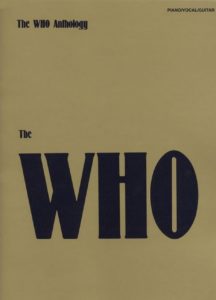 |
The Who Anthology Contents |
| The Who – Guitar Play Along Volume 108 WITH mp3 audio tracks with Tablature |
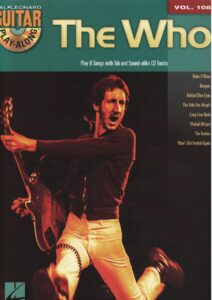 |
Guitar Play-Along Volume 108 – The Who |
| The Who – Tommy (Piano-Vocal-Guitar) |
 |
The Who – Tommy |
| The Who Rockscore |
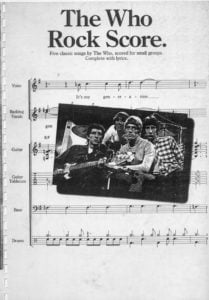 |
|
| The Who The Acoustic Guitar Collection Guitar Songbook TABs |
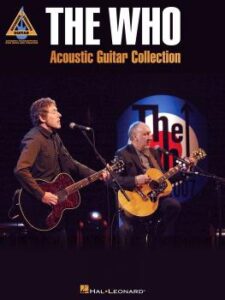 |
The Who The Acoustic Guitar Collection Guitar Songbook TABs contents |
| The Who The Definitive Collection Volume A E Guitar TABs Songbook |
 |
The Who The Definitive Collection Volume A E Guitar TABs Songbook |
| The winner takes it all (Abba) | ||
| The Wizard of Oz – (Harold Arlen) Vocal & piano score |
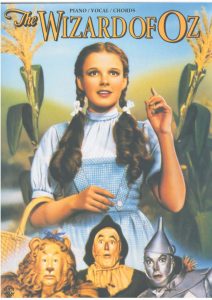 |
The Wizard of Oz – (Harold Arlen) -vocal.piano.score |
| The Wizard Of Oz The Musical by Andrew lloyd Webber |
 |
The Wizard Of Oz Musical Webber |
| The Wonder of Life (Afterwards OST) Alexandre Desplat | ||
| The Wonders – That Thing You Do | ||
| The Words And Music Of Frank Zappa By Kelly Fisher Lowe (Book) |
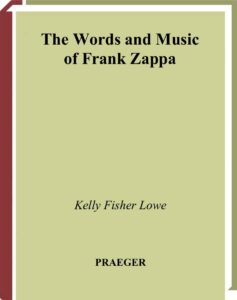 |
|
| The World Hits Of Oldies (Jazz Fake book) |
 |
|
| The World’s best music (Famous Compositions for Piano Vol. 1) 1904 | The world’s best music | |
| The World’s best music V Famous compositions for the piano |
 |
The World’s best music V Famous compositions for the piano |
| The World’s Greatest Fake Book |
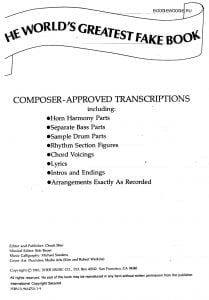 |
Greatest Fake Book |
| The Worlds best music I Famous compositions for the piano |
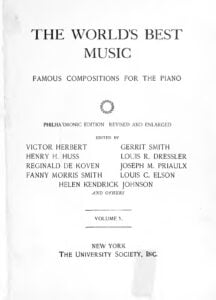 |
The Worlds best music I Famous compositions for the piano |
| The Yellow Rose Of Texas – Traditional (Musescore File).mscz | ||
| The Young Pianist’s Anthology Of Modern Music (1972) |
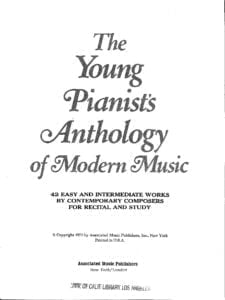 |
The Young Pianist’s Anthology Of Modern Music (1972) |
| The Zombies Songbook |
 |
|
| Thegogos – Head Over Heels | ||
| Thelonious Monk Compositions (as recorded by himself) | Thelonious Monk’s Compositions Fake Book – (Jazz) | |
| Thelonious Monk Blue Sphere |
 |
|
| Thelonious Monk easy piano solos Jazz |
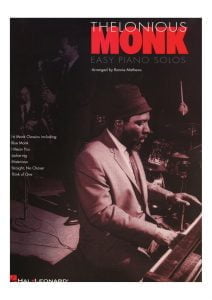 |
Thelonious Monk easy piano |
| Thelonious Monk – Japanese Folk song (Kojo No Tsuki) (sheet music transcription) |
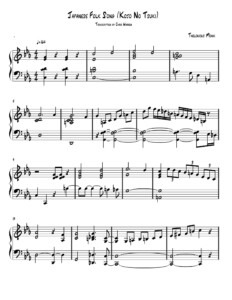 |
|
| Thelonious Monk – Jazz Masters |
 |
Thelonious Monk – Jazz Masters |
| Thelonious Monk – Originals and standards |
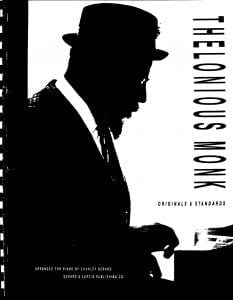 |
Thelonius Monk originals |
| Thelonious Monk – The Man I Love (solo) Gershwin |
 |
|
| Thelonious Monk & Cootie Williams – ‘Round Midnight | Thelonious Monk & Cootie Williams – ’round Midnight | |
| Thelonious Monk Collection | Thelonius Monk Collection | |
| Thelonious Monk Collection 12 Note For Note Solo Piano Transcriptions Artist Piano Transcriptions |
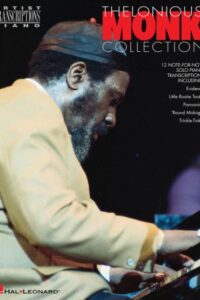 |
Thelonious Monk Collection 12 Note For Note Solo Piano Transcriptions Artist Piano Transcriptions |
| Thelonious Monk Compositions (as recorded by himself) | Thelonious Monk’s Compositions Fake Book – (Jazz) | |
| Thelonious Monk Fake Book | Thelonious Monk Fake Book | |
| Thelonious Monk Fake Book C Edition |
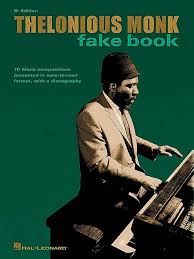 |
Thelonious Monk Fake Book C Edition |
| Thelonious Monk For Guitar with TABs |
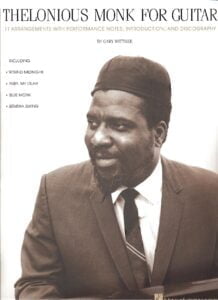 |
Thelonious Monk For Guitar |
| Thelonious Monk Intermediate Piano Solos Arranged By Ronnie Mathews 14 Arrangements |
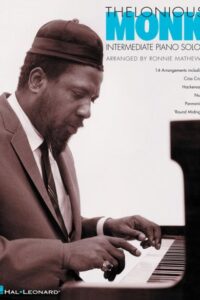 |
Thelonious Monk Intermediate Piano Solos Arranged By Ronnie Mathews 14 Arrangements |
| Thelonious Monk Jazz Piano Collection |
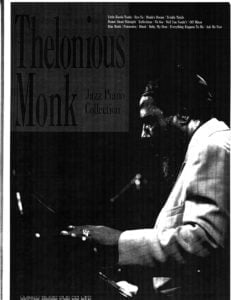 |
Thelonious Monk Jazz Piano Collection |
| Thelonious Monk Jazz Piano Solos Series Volume 49 |
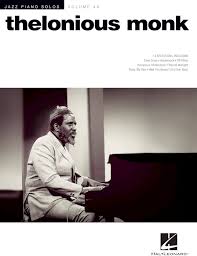 |
Thelonious Monk Jazz Piano Solos Series Volume 49 |
| Thelonious Monk Omnibook for piano Transcribed exactly from his recorded solos |
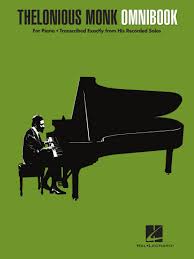 |
Thelonious Monk Omnibook for piano Transcribed exactly from his recorded solos |
| Thelonious Monk Plays Standards – Volume 1 Artist Transcriptions Piano 12 transcriptions |
 |
Thelonious Monk Plays Standards – Volume 1 Artist Transcriptions Piano 12 transcriptions |
| Thelonious Monk Plays Standards – Volume 2 Artist Transcriptions Piano 12 transcriptions |
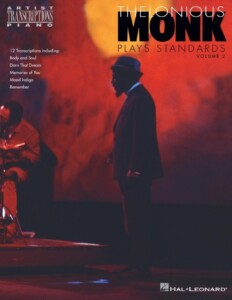 |
Thelonious Monk Plays Standards – Volume 2 Artist Transcriptions Piano 12 transcriptions |
| Thelonious Monk Quartet featuring John Coltrane at Carnegie Hall (Book) |
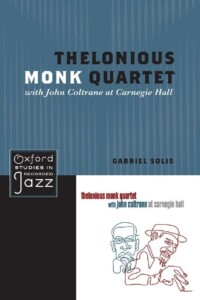 |
|
| Thelonious Monk Revealing Instincts Of The Genius Of Jazz Piano Originals |
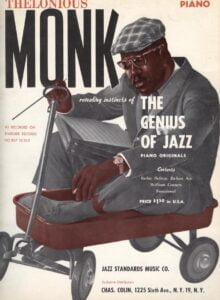 |
Thelonious Monk The Genius Of Jazz |
| Thelonious Monk Round Midnight Jazz Standard arr. Carsten Gerlitz |
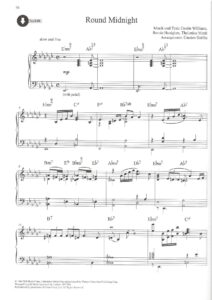 |
|
| Thelonious Monk Solo Transcriptions |
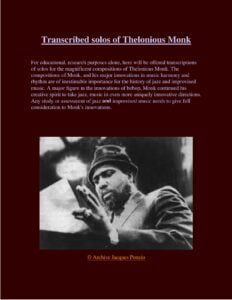 |
Thelonious Monk Solo Transcriptions |
| Thelonious Monk Tea For Two (piano solo transcription sheet music, partition) | Thelonious Monk Tea For Two (piano solo transcription sheet music, partition) | |
| Thelonius Monk – Monk’s Music and Jazz History in the making (Book) |
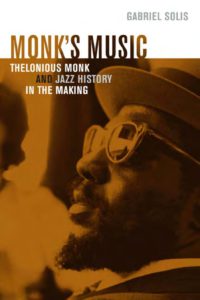 |
|
| Thelonius Monk – Thelonious transcription | Thelonius Monk – Thelonious transcription | |
| Theme de Charles (Un homme et son chien OST) Philippe Rombi | ||
| Thème de Jeanne – Le Diable par la Queue OST (Georges Delerue) | ||
| Thème de Jeanne – Le Diable par la Queue OST (Georges Delerue) trio version | ||
| Theme de Suzanne – Potiche OST (Philippe Rombi) | ||
| Theme from the Mermaid Chair (Secret Garden) | ||
| Theme From The Simpsons Jazz Play Along (Musescore File).mscz | ||
| Theodore Shapiro Diary Of A Wimpy Kid – Main Titles |
 |
|
| Theodore Shapiro Louder Than Thunder The Devil Wears Prada Theme Piano Solo Arr. |
 |
|
| Theodore Shapiro Severance Main Theme |
 |
|
| Theodore Shapiro Suite from The Devil Wears Prada Theme Piano Solo |
 |
|
| Theory Essentials An Integrated Approach To Harmony, Ear Training, And Keyboard Skills (Connie E. Mayfield) Book |
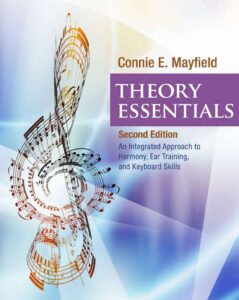 |
|
| Theory of Harmony – Arnold Schoenberg | Book Theory | |
| These Foolish Things Sheet Music Ella Fitzgerald |
 |
|
| Thinking In Jazz The Infinite Art of Improvisation Berliner, Paul (Book) 1994 |
 |
|
| This Is Halloween Easy Piano |
 |
|
| This Is Us Songbook Selections From The Television Series Soundtrack |
 |
|
| This Land Is Your Land (Guitar Chords) (Musescore File).mscz | ||
| This Land Is Your Land (Musescore File).mscz | ||
| This Little Light of Mine (African-American Spiritual) from The Best Children’s Songs Ever (Easy Piano) | This Little Light of Mine (African-American Spiritual) from The Best Children’s Songs Ever (Easy Piano) | |
| This Little Light of Mine (African-American Spiritual) from The Best Children’s Songs Ever (Easy Piano) Musescore file.mscz | ||
| Thomas Attwood Allegro First Movement From Sonatina No. 1 In G (Trinity Grade 2 Piano) |
 |
|
| Thomas Attwood – Allegro – First Movement from Sonatina No. 1 in G (Trinity Grade 2 Piano).mscz | ||
| Thomas Johnson READ AND PLAY New Series Grades II, III and IV Piano |
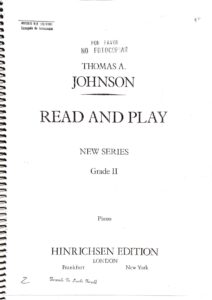 |
|
| Thomas Newman – Any Other Name (American Beauty Theme) | Thomas-Newman-Any-Other-Name-American-Beauty 1st page | |
| Thomas Newman – Road To Perdition – Road To Chicago |
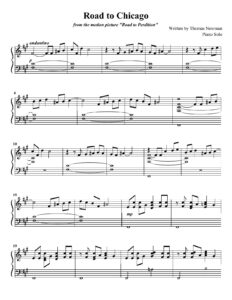 |
|
| Thomas Newman – Road To Perdition (Piano Solo) |
 |
|
| Thomas Newman – Road To Perdition Theme – Guitar Tabs |
 |
|
| Thomas Newman – The Horse Whisperer – Montana | Thomas Newman – The Horse Whisperer – Montana | |
| Thomas Newman – The Horsewisperer – The Vast Continent |
 |
|
| Thomas Newman – The Horsewisperer – Voice Of God | Thomas Newman – The Horsewisperer – Voice Of God | |
| Thomas Newman – The Shawshank Redemption – Stoic Theme |
 |
|
| Thomas Newman Forbidden Love (Meet Joe Black) | ||
| Those Were The Days (Musescore File).mscz | ||
| Those Were The Days Russian Traditional Jazzy Version | Those Were The Days Russian Traditional Jazzy Version | |
| Three Coins In The Fountain 1954 by Jule Styne and Sammy Cahn |
 |
|
| Three Days Grace – Never Too Late | ||
| Tidus And Yuna’s Theme (Musescore File).mscz | ||
| Tifa’s Theme (Final Fantasy VII Piano Collections) |
 |
|
| Tifa’s Theme Final Fantasy Vii Piano Collections (Musescore File).mscz | ||
| Tim Burton Corpse Bride Songbook |
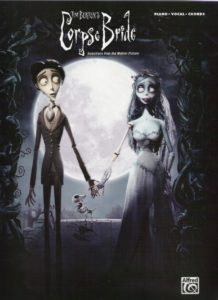 |
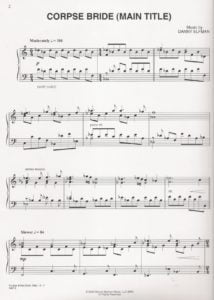 |
| Tim Minchin – Miracle (Matilda the Musical) | Tim Minchin – Miracle (Matilda the Musical) | |
| Tim Minchin – Prejudice (Musical Comedy) Piano Sheet Music | Tim Minchin – Prejudice (Musical Comedy) Piano Sheet Music | |
| Tim Richards Improvising blues piano (PDF + MP3 audio tracks) |
 |
Improvising Blues Piano (with audio Mp3) |
| Tim Richards – Exploring Jazz Piano Vol. 1 (with MP3 audio tracks) |
 |
Tim Richards Exploring Jazz Piano 1 |
| Tim Richards – Exploring Jazz Piano Vol. 2 (with MP3 audio tracks) |
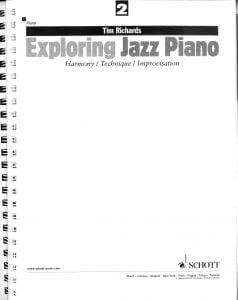 |
Exploring jazz piano 2 |
| Tim Richards – Exploring Latin Piano (with audio MP3) |
 |
Tim Richards – Exploring Latin Piano |
| Tim Smith Cardiacs All Spectacular Piano Solo |
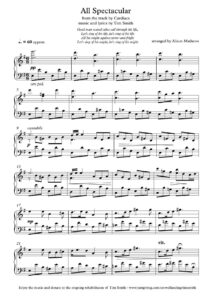 |
|
| Tim Smith Cardiacs Savour Piano Solo |
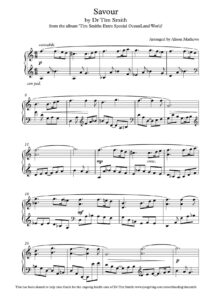 |
|
| Timbaland – Way I Are | ||
| Time (Inception) – Hans Zimmer – Solo Piano (Musescore File).mscz | ||
| Time is like a dream (Interlude OST) Georges Delerue |
